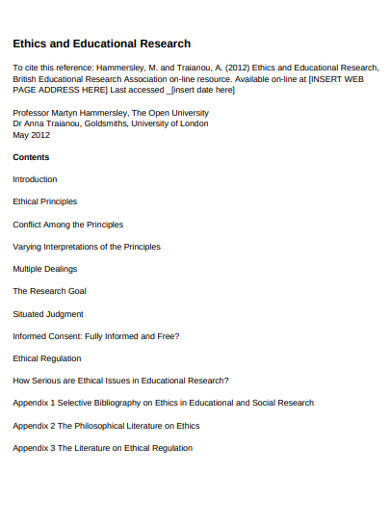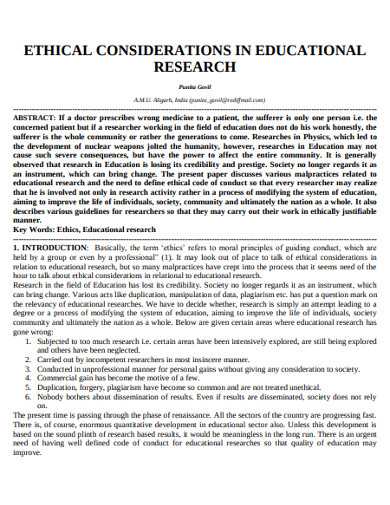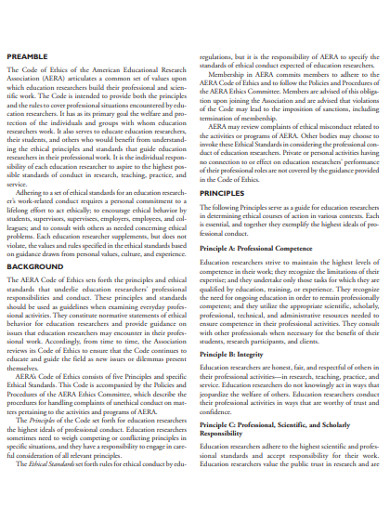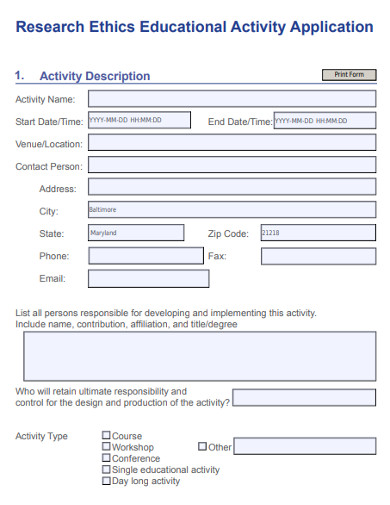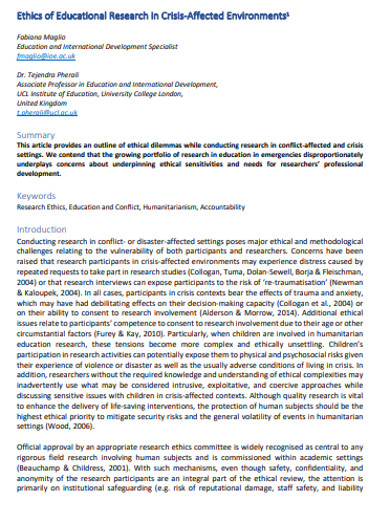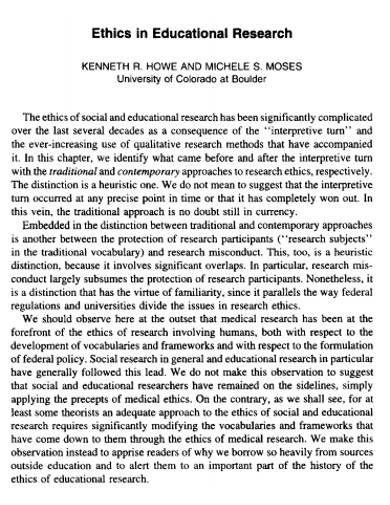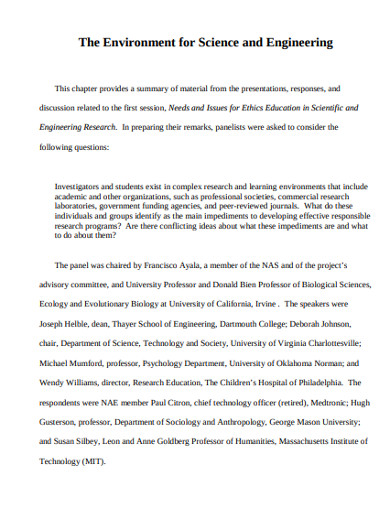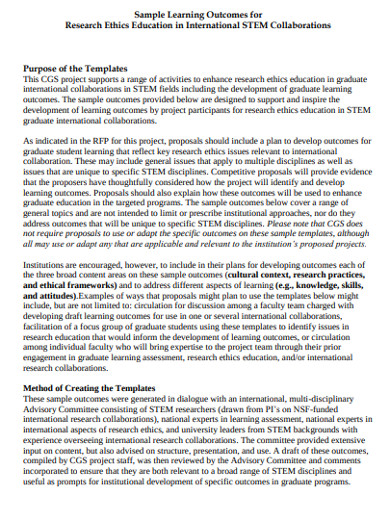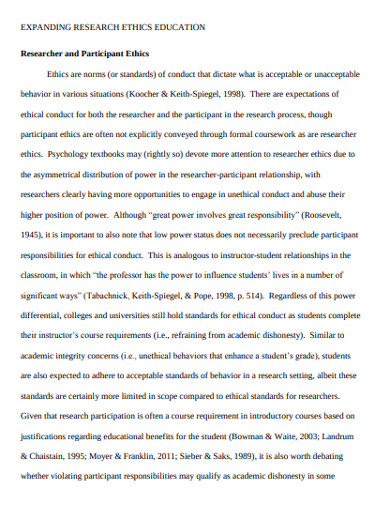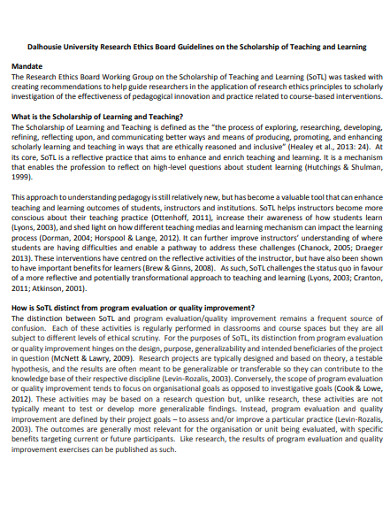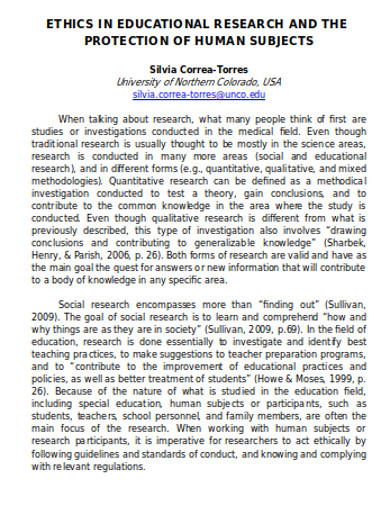10+ Educational Research Ethics Examples to Download
The world you live in today isn’t exactly the one you dreamed of. Society’s priorities have become so trivial and meaningless. In recent events, people show more remorse over the destruction of a building than the death and struggle of many innocent children all over the world. You are only relevant if you are famous on the internet. Even the education system across several countries have failed the very students they promised to serve. Luckily, many unsung heroes have devoted their time not just for personal goals but for the betterment of everyone. Perhaps they followed the basics of educational research ethics; maybe they are just good people.
In the world of research, some rules exist as not to compromise anyone: not the researchers, not the participants, no one. Research, in itself, is already tricky enough. But having no concerns for the ethical principles that bind our society can get you into trouble. People believe that moral principles are rules that set the fine line between right and wrong. Ethics in education and social research can be considered the guidelines for accomplishing research without harming or compromising those who are involved. Educational research ethics push the boundary for development and moral considerations. Any research plans should adhere to education research ethics.
Issues
Although many regard ethics as commonsense, there are still people who do unethical acts. This raises the question, “is ethics really part of commonsense?” Even if you say that ethics is a fundamental part of research and philosophy, there are educational research articles that cite how some researchers disregard ethics to appease their benefactors. No matter how loud people scream their personal ethics, they don’t always practice what they preach. There are also times when people’s interpretations of what is ethical and morally correct can differ. People learn moral norms at home, in school, and even in the church. Although they could come from the same source, the way they affect people differently. Two people would say that sharing is good, but their stands on giving answers during an exam could be polar opposites. The difference in understanding the principles given by an ethics committee is what creates major disputes.
10+ Educational Research Ethics Examples
Ethical norms are fairly easy to understand. They are also to apply. But what is hard is staying true to them. There are times where you will be tested, but you need to stay strong for the good of your research. Sometimes all you need is an academic research ethics guide to keep you from crossing the fine line between right and wrong. To help you understand educational research ethics, here are 10+ educational research ethics examples you can study.
1. Sample Educational Research Ethics Example
2. Ethical Consideration in Educational Research Example
3. Educational Research Association Ethics Example
4. Research Ethics Educational Activity Application Example
5. Ethics of Educational Environments Research Example
6. Basic Ethics in Educational Research Example
7. Educational Engineering Research Ethics Example
8. Sample Learning Outcomes for Education Research Ethics
9. Educational Research Participant Ethics Example
10. University Board Research Ehics Example
11. Educational Reseaarch Ethics and Protection Example
Achieving Ethical Enlightenment
When conducting educational action research, there are some rules you need to abide by. Yes, technical rules should apply, but there are societal rules that researchers should also take into consideration. There are ethical standards so that the process, outcome, and data used in the research does not harm anyone involved or outside the study. Although many ethical principles exist, there are a few that encompass the general idea.
1. Honesty
In the academic spectrum, being honest is a guaranteed must. Your research reports must only contain truthful and untampered data. Fabricating any information can lead to severe repercussions. You should also be open to sharing the process and results of your research. People will doubt you when they feel you are hiding something.
2. Objectivity
Any biases can cause inconsistencies in the research. Objectivity is necessary for making sure your research is on point. As a researcher, you mustn’t let any peer reviews and other external factors affect you and your data analysis. Biases can also affect how readers interpret your research. Stick to being objective when it is needed.
3. Integrity
Integrity is something every researcher must possess. If there are any confidentiality agreements you made before and during the research, you must abide by it. You must act with utmost sincerity and strive for consistency. This also means you are bound by the fine prints of your contracts and the law of the state. You should also respect others’ intellectual property. Plagiarism isn’t a joke.
4. Carefulness
In the fields of social science, education, psychology, and medicine, accuracy is very important. You need to make sure you check your work for any errors. Your results will be viewed by many readers, as not to cause any confusion, make sure they are reading the correct information. You need to conduct a project analysis if something does go wrong.
5. Responsible publication
When publishing something, you must make sure it is for the sake of advanced education and development. Distributing something just for the sake of saying you got to launch something is not admirable. Publish something with an actual purpose.
6. Social Responsibility
As someone in the field of science, your work should be for the good of the people. You should be a promoter of social good. Your advocacy must have an impact not just a ploy for social marketing. Part of social responsibility is also educating young minds that are interested in your field. You must also always respect your colleagues.
Greatness means being skilled at something and also being a good human being. If you can conduct smart research without stepping on others, you have achieved greatness.



